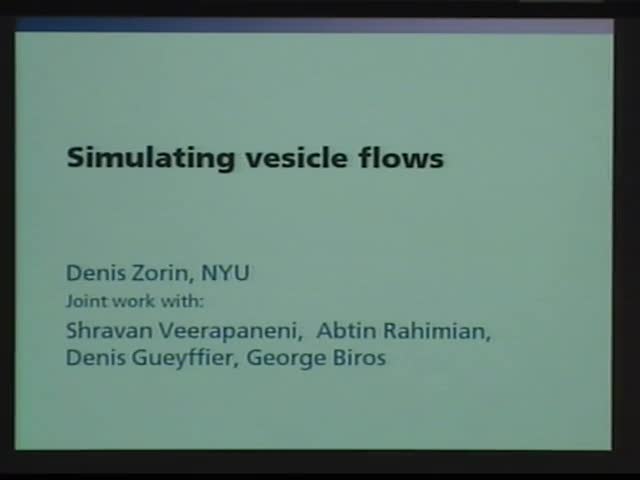Abstract
Vesicles are locally-inextensible fluid membranes that can
sustain bending. We consider the dynamics of flows of
vesicles suspended in Stokesian fluids. We use a boundary
integral formulation for the fluid that results in a set of
nonlinear integro-differential equations for the vesicle dynamics.
The motion of the vesicles is determined by balancing
the nonlocal hydrodynamic forces with the elastic
forces due to bending and tension. Numerical simulations
of such vesicle motions are quite challenging. On one hand,
explicit time-stepping schemes suffer from a severe stability
constraint due to the stiffness related to high-order spatial
derivatives and a milder constraint due to a transport-like
stability condition. On the other hand, an implicit scheme
can be expensive because it requires the solution of a set
of nonlinear equations at each time step. We present a set
of numerical techniques for efficient simulation of vesicle
flows. The distinctive features of these numerical methods
include (1) using boundary integral method accelerated with the
fast multipole method (2) spectral (spherical harmonic) discretization
of deforming surfaces in space (3) an algorithm for
surface reparameterization ensuring stability of the
time-stepping scheme and spectral filtering accuracy while minimizing
computational costs.
By introducing these algorithmic components, we obtain a
time-stepping scheme that experimentally is unconditionally
stable and has a low cost per time step. We present numerical results
to analyze the cost and convergence rates of the scheme.
